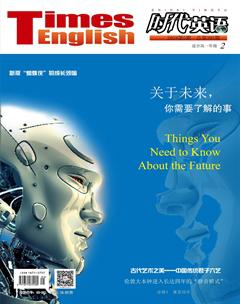古代艺术之美
The ancient traditional six arts can be dated back to the Zhou Dynasty, 1046 BC. The noble class used the six arts as a standard to judge whether a son of aristocrats was fit to hold his title. The six arts included courtesy, music, archery, riding, writing and math.
古代传统六艺可以追溯到公元前1046年的周朝。贵族阶层以六艺为标准,来判断贵族的下一代是否有资格拥有他的头衔。六艺包括礼、乐、射、御、书、数。
Courtesy礼
Courtesy is an extraordinarily important cornerstone in Chinese culture. Without courtesy, the 5000-year-old country would never exist. In ancient China, there were officers in charge of courtesy for every aspect of life, like marriage, funerals, school entry and sacrifice.
Chinese people started to live with a sense of ritual thousands of years ago and nothing can remove it from Chinese culture.
“礼”是中华文化中十分重要的基石。没有“礼”,这个拥有5000年历史的国家就不会存在。在古代,有专门的官员负责生活中方方面面的“礼”,比如嫁娶、葬礼、入学和祭祀。
“礼”与中国人相伴了几千年,它是中国文化不可或缺的一部分。
Music乐
Music was not just a melody or a pastime for entertainment in ancient China. It was a symbol of great manners and a well-educated person. It was not just a melody but also contained music theory. To learn music, one should have high aesthetic standards.
Confucius himself studied from three different people to learn courtesy, music and how to play music. Music was also an indispensable part of Chinese culture. People play music in every ritual to express feelings and emotions. Also, there was a special position for a music officer in the court.
“樂”在中国古代并不仅仅是旋律或者娱乐消遣。它是礼节的象征,也是受过良好教育的人的象征。它不仅仅是一段旋律,还包含着音乐理论。要学习“乐”,人们要有很高的美学素养。
孔子自己师从多人去学习礼、乐和演奏。“乐”同样是中国文化不可或缺的一部分。人们在每一场仪式上演奏音乐来表达自己的感受与情绪。同样,宫廷中有专门负责“乐”的乐官。
Archery射
Archery was not only a way to protect the kingdom or to kill enemies, but was also a good sport. China measured its force of strength as much as literature. A real gentleman should not only be well-educated but also should be strong and demonstrate great archery skills. A good archer was highly admired in ancient China not only among the nobility but also among ordinary people. The ancient emperors took archery classes as a required course and it was a tradition to hold a big hunting ceremony every year.
“射”不仅仅是保卫王国、消灭敌人的手段,也是一项很好的运动。中国将它的力量看得和文学一样重要。一个真正的君子不仅仅要受到良好的教育,同时也要有强健的体魄和好的射箭技术。在中国古代,一个好的弓箭手无论是在贵族还是平民间,都会很受尊敬。古代皇帝将射箭设为必修课,每年举行一次大型的狩猎活动是一种传统。
Riding御
Riding is an interesting subject in ancient China. If you wanted to compete in riding, your skills and your talents would be both required. Riding contests were always popular, and the winner always showed great leadership and great skills in operation research. Also, riding was so important in wars, so almost every man and even woman had to learn how to ride.
“御”是古代中国很有意思的一门课程。如果参加骑术比赛,这不单单需要技术,还需要天赋。骑术比赛在中国古代很流行,获胜者总能表现出卓越的领导能力和高超的操控技能。同样,骑术在战争中十分重要,所以在中国古代几乎每个男人甚至是女人都要学习骑术。
Writing书
Writing usually included handwriting, reading, drawing and composition. There have been so many great calligraphers throughout the history of China and Chinese greatly valued handwriting. Theres a saying that your handwriting reflects your alter ego. Especially in ancient China, it was necessary for an emperor to write beautifully. There were many emperors in China who were not only calligraphers, but also poets. Having the ability to compose poems is the skill of an educated person. Chinese ancient poetry is a precious heritage for every Chinese and to the whole world.
“书”通常包括书法、閱读、绘画和写作。中国的历史上有很多书法家,中国人很重视书法。有这样的一个成语:字如其人。尤其是在中国古代,皇帝得写得一手好字。中国古代的皇帝有很多不只是书法家,同时还是诗人。作诗是每一个受过教育的人应有的才能。中国古诗是每一个中国人,甚至是全世界的宝贵遗产。
Math数
In ancient times, math was a useful method to make predictions. Ancient Chinese also developed links between math and ancient astronomy. Ancient Chinese used math to develop astronomy, to predict the weather and applied knowledge to real life. The Nine Chapters on the Mathematical Art was the earliest Chinese math book. The ancient Chinese also developed the abacus to benefit daily living and this invention is one of Chinas material cultural heritages.
在古代,“数”是一种重要的占卜方法。古代中国人也建立起了数学与古代天文学之间的联系。古代中国人利用数学来发展天文学,以此来预测天气并将知识运用到现实生活之中。《九章算术》是中国最早的数学书籍。古代中国人还发明了算盘,以方便人们的日常生活,这项发明是中国的物质文化遗产之一。
Word Study
sacrifice /'s?kr?fa?s/ n. 祭祀;献祭
They offered sacrifice to the gods.
demonstrate /'dem?nstre?t/ v. 表现;显露
You need to demonstrate more self-control.
contest /'k?ntest/ n. 比赛;竞赛
I only entered the contest for fun.
reflect /r?'flekt/ v. 反映;映出
She could see herself reflected in his eyes.
heritage /'her?t?d?/ n. 遗产
benefit /'ben?f?t/ v. 使受益;有益于
We should spend the money on something that will benefit everyone.

